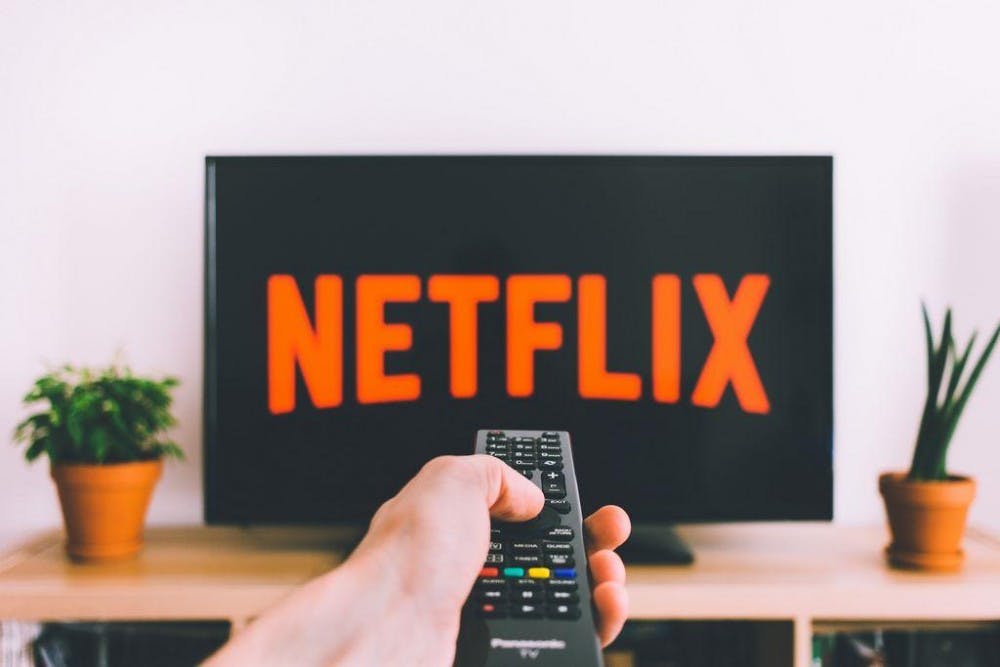Although Netflix originals, specifically romantic comedies, remain increasingly sought after, many perpetuate harmful stereotypes, double standards and unhealthy relationships.
In the past two years, the popularity of Netflix’s rom-coms has skyrocketed. With the release of Netflix’s latest rom-com, “Tall Girl,” which sparked controversy and debate over twitter, it seems Netflix will continue to promote movies aimed at teens and young adults that incorporate problematic narratives lacking representation.
“Tall Girl” centers around Jodie, a 6-foot-1-inch teen girl battling her insecurities with her height. The premise itself is not bad. Many teenagers struggle with accepting themselves, and conveying overcoming this difficulty is admirable.
However, what is not admirable is that the movie only features two people of color, both of whom are clearly side characters, while the main character is a middle class, cis-gender, straight white teen. Ironically, in one of the opening lines Jodie says, “You think your life is hard?”
No one denies that tall girls need a voice too. These stories are not invalid, but in order to be done right they need to be told accurately and inclusively.
Unfortunately, a majority of Netflix rom-coms center around straight white characters who have straight white love interests.
The two characters of color in “Tall Girl” serve as mere plot devices. Specifically, Jodie’s best friend was used to help her realize she should embrace her tallness.
This happens again in the movie “The Perfect Date.” The black gay best friend, Murph, is the definition of tokenism. His entire purpose was to be a representation of two minority groups and drive the plot along. He created the dating app the movie revolved around, and he helped teach the lead to accept his true self.
Both movies use tokenism and stereotypes of the “black best friend." for the intention of appearing diverse so the movies pass as acceptable. According to the online publication ThoughtCo., these characters are written one-dimensionally, their single importance being to “turn up at exactly the right moment to coach white characters through life.” These types of movies give off an illusion of showcasing underrepresented groups when in actuality these people and their stories are overlooked.
Another issue prevalent in too many of these rom-coms is the blatant and hypocritical double standards. “Sierra Burgess Is a Loser” contains a heap of concerning elements. For starters, the romance in the movie began as a catfish. Burgess not only continued messaging a boy who believed she was someone else, but she also devised elaborate plans to keep said boy under that impression. She even pretended to be another girl when she kissed the love interest while he kept his eyes closed. The kiss was nonconsensual, and Netflix promoting this as “romantic” is a huge problem. If the roles had been reversed there is no way Netflix would have gotten away with that plot.
Netflix viewers also heavily criticized one of its most popular rom-coms, “The Kissing Booth,” for endorsing a possessive and potentially abusive relationship. The love interest in this flick was so controlling that he threatened any guy wanting to ask out the protagonist, Elle. His aggressive nature and tendency to start fights in Elle’s honor was romanticized when it should have been shown as a clear red flag.
However, Netflix has produced multiple romantic movies that have demonstrated excellent representation across the board. Movies like “Someone Great” and “Always Be My Maybe” have displayed diverse casts reflective of populations in big cities like New York and San Francisco. They also showcase a diverse multitude of relationships and powerful women. “Someone Great” shows a biracial and lesbian relationship, while “Always Be My Maybe” depicts a married lesbian couple expecting a child and a stars relationship with two people of color.
These kinds of movies confirm Netflix can make strong rom-coms that portray realities tastefully, yet still chooses to condone outdated and whitewashed storylines.
As long as Netflix encourages inaccurate and destructive messages to its audiences, people and their love stories will remain misrepresented.

